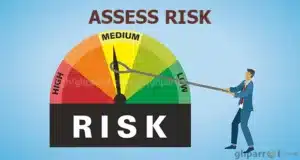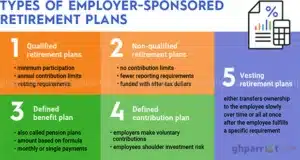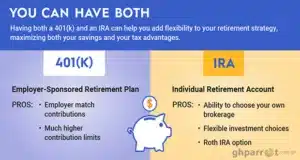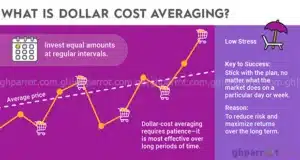9 Best Tips On How to Start Investing: A Beginner’s Guide
Discover the Hidden Path to Untold Riches: The Beginner's Guide to Investing that Wall Street Doesn't Want You to Know!

Introduction:
Learning how to start investing is powerful for building wealth and securing your financial future. However, for beginners, the world of investing can seem complex and overwhelming. If you’re eager to start investing but don’t know where to begin, this comprehensive beginner’s guide will walk you through the essential steps and provide you with the knowledge and confidence to take the plunge into the world of investing.
Set Clear Financial Goals:

How to start investing as a beginner can be a difficult curve. Before you start investing, it’s crucial to establish clear financial goals. Determine what you’re investing for—retirement, buying a house, funding education, or achieving financial freedom. Specific goals will help you tailor your investment strategy to align with your aspirations. Specific investments require different terms of period to achieve and must be looked at.
Educate Yourself about Different Investment Options:

“For the lack of knowledge, my people perish” – Jesus Christ. Knowing and understanding the type of investment you want to delve into means you are halfway there. Take the time to educate yourself about the various investment options available. Common investment vehicles include stocks, bonds, mutual funds, exchange-traded funds (ETFs), and real estate. Each option has its own risk and return profile, so understanding how they work is essential in making informed decisions.
Assess Your Risk Tolerance On How To Start Investing:

In every business, there is a risk one must take and a risk to lose something. Understanding risk tolerance in investing is imperative. Investing always involves some level of risk. Assess your risk tolerance honestly—how comfortable are you with the possibility of losing money in the short term? Your risk tolerance will influence the mix of investments you choose. Generally, younger investors can afford to take more risks due to their longer investment time.
Start with Employer-Sponsored Retirement Accounts:

The best investment strategy for beginners is that of your employer. If your employer offers a retirement savings plan, such as a 401(k) or a similar account, consider starting there. Employer-sponsored plans often come with the advantage of employer matching contributions, which is essentially “free money” to boost your investments.
Open a Tax-Advantaged Individual Retirement Account (IRA):

Individual Retirement Accounts (IRAs) provide valuable tax benefits and allow you to invest for retirement outside of an employer’s plan. There are two main types of IRAs: Traditional IRA and Roth IRA. Each has different tax implications, so choose the one that aligns with your financial goals and tax situation. Consider this as an investment tip when planning your journey as a beginner.
Diversify Your Portfolio:

Diversification is a crucial aspect of successful investing. Diversify across different asset classes and industries instead of putting all your money into a single investment. Diversification helps spread risk and can lead to more stable returns over time. This simply means, try to invest in various sectors and industries so that in a circumstance where one industry is crumbling down, another can be your source of income.
Consider Dollar-Cost Averaging:

Investment advice for new investors will be to consider Dollar-cost averaging as an investment strategy where you invest a fixed amount of money at regular intervals, regardless of market conditions. This method can help reduce the impact of market volatility and lower the average cost per share of your investments over time.
Stay Invested for the Long Term:

Investing is not a get-rich-quick scheme. It requires patience and discipline. Stay invested for the long term, avoid making knee-jerk reactions to short-term market fluctuations, and resist the temptation to time the market.
Monitor and Rebalance Your Portfolio:

As your financial situation or market conditions change, it’s essential to review and rebalance your portfolio regularly. Rebalancing involves adjusting your investment allocation to maintain your desired level of diversification.
Conclusion on How to Start Investing As a Beginner:
Starting your investment journey as a beginner may feel intimidating, but with proper guidance and a sound understanding of the basics, it becomes an achievable and rewarding endeavour. Remember to set clear goals, educate yourself about investment options, diversify your portfolio, and stay committed to your long-term investment strategy. By following this beginner’s guide to investing, you’ll be on your way to building a strong financial foundation and working towards your financial dreams.







Good tips to share. Happy I came across this.